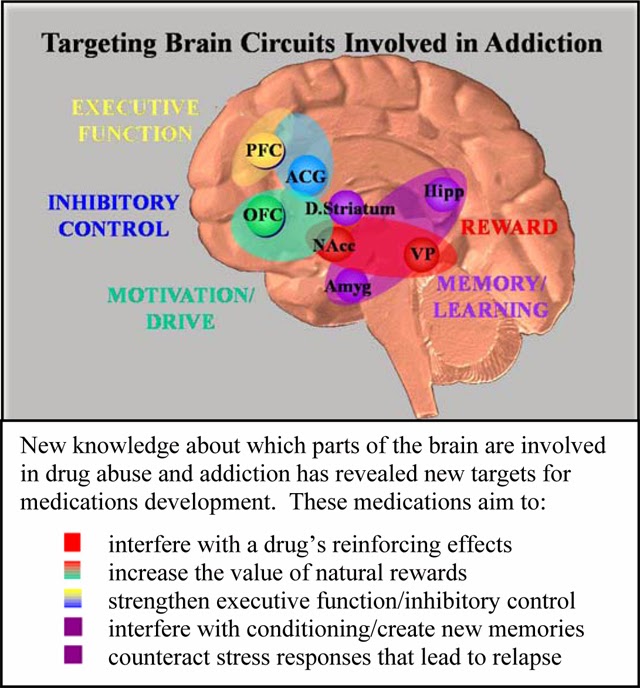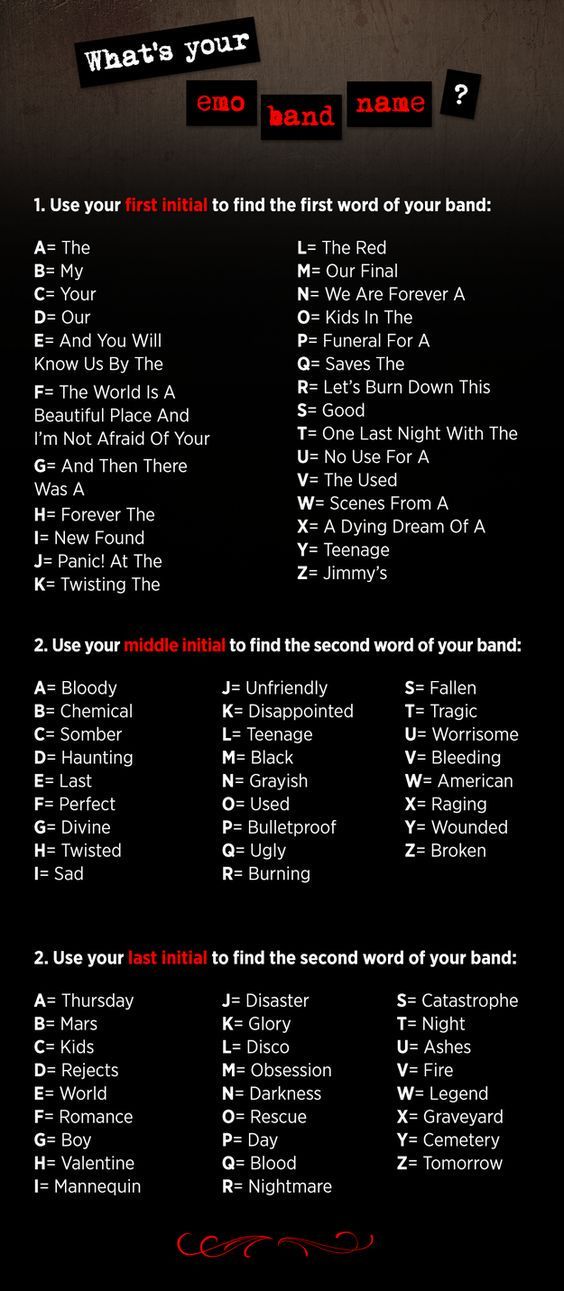Work anxiety disorder
Workplace Anxiety: Causes, Symptoms, and Treatment
Written by Madeline Laguaite
If you find yourself getting stressed at work, know that it happens to everyone and it’s completely normal. But if you realize that stress is constant, overwhelming, and prevents you from living your life, it could be an anxiety disorder.
Having anxiety at work can have a huge impact on you and your career. People who feel anxious at work might even make career decisions based on their anxiety. For example, you might feel like you have to turn down a promotion if it involves more managing, public speaking, or traveling to new places.
If you have workplace anxiety, you might have symptoms like:
- Avoiding friends or family
- Constant worrying
- Crying
- Feeling irritable, tired, or tense
- Feeling like you need to be perfect
- Having trouble sleeping
- Having trouble concentrating or remembering things
- Losing interest in your work
- Overeating or undereating
What Causes Workplace Anxiety?
Lots of things can cause anxiety in the workplace. Darcy E. Gruttadaro, JD, the director of the Center for Workplace Mental Health at the American Psychiatric Association Foundation, says anxiety disorders are the most common mental health condition in the United States.
“It’s not uncommon for people to feel nervous about a big presentation, meeting with clients, or working directly with senior leaders,” Gruttadaro says. “Anxiety disorders involve more extreme, often crippling, and persistent levels of fear, apprehension, and worry.”
In fact, co-workers and managers might not realize a person they work with has an anxiety disorder. Gruttadaro says some red flags that might suggest a person has an anxiety disorder include:
- A drop in performance
- Excessive missed days of work
- Not appearing engaged in work
- Physical complaints, like sweating, upset stomach, and not sleeping well (without another explanation)
- Poor job productivity
Debra Kissen, PhD, a clinical psychologist, says it can be helpful to take a look at how you’re feeling throughout the workday.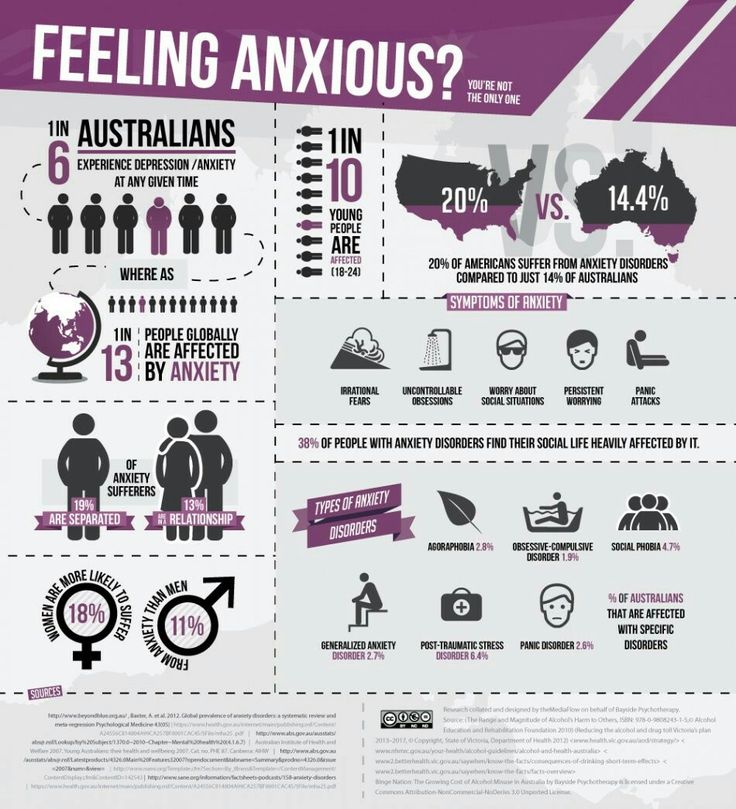
“[Evaluate your anxiety] in terms of how severe it is and how disabling,” Kissen says. “Maybe it’s showing up and you’re still operating pretty effectively or when you’re feeling that way, maybe you’re only 10% as effective as you would be otherwise.”
The root cause of anxiety at work depends on the person. For some people, extra-long work hours, high stress, a lack of support from managers and co-workers, and related factors can lead to someone developing anxiety at work, Gruttadaro says.
Other situations that might make you anxious include:
- Dealing with issues at work
- Giving presentations
- Keeping up with personal relationships
- Meetings, staff lunches, and office parties
- Meeting and setting deadlines
- Speaking up during meetings
Managing Anxiety at Work
Luckily, there are lots of things you can do to manage your anxiety and stress at work.
For example, Kissen suggests keeping a log to figure out what type of anxiety you’re having. Start by tracking moments where you feel uncomfortable or anxious during the workday.
Start by tracking moments where you feel uncomfortable or anxious during the workday.
“Maybe there are some trends, like it’s really more in the beginning of the day when you’re first looking at everything that’s due, or maybe it’s at the end of the day when you still have so much on your plate but you really need to leave to pick up your kids,” she says.
Listening to your internal voice and facing some of those anxious thoughts can help, too.
“If your mind says, ‘Oh, they definitely think I’m stupid,’ or ‘Oh, they just ignored me.’ Is there any other explanation they went by your desk or didn’t hear you on the Zoom call?” Kissen says. “So we’re not just trying to convince ourselves everything’s OK, but we want to have a more realistic interpretation versus catastrophic.”
Here are a few more tips:
- Adopt healthy habits. Getting enough sleep, eating healthfully, regularly exercising, and not drinking too much alcohol or caffeine can help keep your mind and body shipshape.

- Be organized. Although clearing your computer and desk might not seem high priority, staying organized will do wonders for you in the long run.
- Be honest with yourself. If you don’t have enough time for it, don’t take on tasks, projects, and assignments you don’t have the time to handle.
- Communicate. Ask for help if you need it. If you have too much to handle, speak up. Your manager might not realize you’re spread too thin.
- Celebrate your successes. Before moving to the next task or project, take a second to celebrate your work and thank the people who helped you.
- Educate yourself. Learn to spot signs of anxiety and get an idea of how to handle those symptoms at work.
- Get it right the first time. Spend a little extra time nailing it the first go around. This can help in the long run as you won’t have to redo your hard work.
- Prepare and plan.
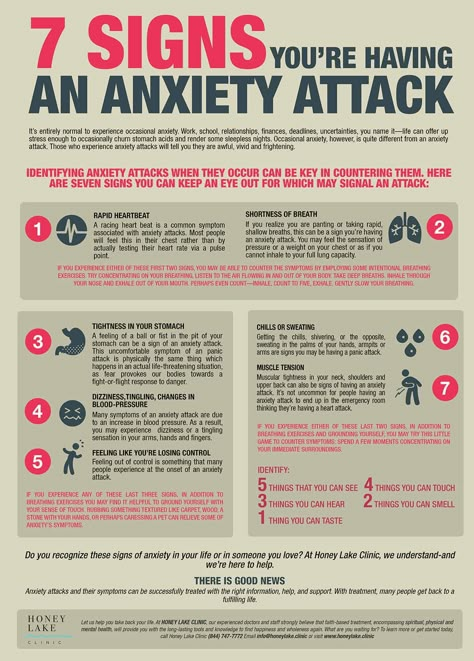 If you have any major projects, get started on them early and set mini deadlines for yourself. It can also help to prepare for issues that might crop up and try to prevent them.
If you have any major projects, get started on them early and set mini deadlines for yourself. It can also help to prepare for issues that might crop up and try to prevent them. - Set clear boundaries. Don’t bring work home with you. For example, make it a rule not to check your voicemail or work email once you leave the workplace.
- Steer clear of toxic co-workers. Don’t listen to gossip or negativity in your workplace.
- Take breaks when you need to. Try some deep-breathing techniques or take a walk to clear your head. This also includes vacations. Chances are, you’ll feel refreshed and ready to get back to it once you return.
- Tell a co-worker you trust. Having someone at work who knows about your anxiety can be comforting, and it might ease some of that stress and fear.
- Use your time management skills. Practicing time management can help alleviate some of the anxiety.
 Try using to-do lists to prioritize your tasks. These lists can also ensure you set aside enough time to finish each task.
Try using to-do lists to prioritize your tasks. These lists can also ensure you set aside enough time to finish each task. - Work. Busying yourself with work can boost your self-esteem and add to your social identity, not to mention earning needed income.
Telling Your Employer
Whether or not you tell your employer about your anxiety at work is completely up to you. Maybe you need accommodations or want to educate people about what you’re going through.
The Americans with Disabilities Act (ADA) protects people with a physical or mental disability who are qualified for the job. This can protect you from job discrimination. An employer can’t refuse to hire you because of a disability that prevents you from doing things that aren’t essential to your role at work.
If you’re an employer, making sure that your employees have access to mental health services and support is important, Gruttadaro says.
She also suggests a few other things employers can do to support their employees:
- Educate the workforce and managers.
 “The more visible you make information about mental health conditions like anxiety, the more likely employees will feel psychologically safe in seeking treatment,” Gruttadaro says.
“The more visible you make information about mental health conditions like anxiety, the more likely employees will feel psychologically safe in seeking treatment,” Gruttadaro says. - Encourage employees to use the Employee Assistance Program (EAP). Reminding employees about the mental health benefits available can help. Normalizing anxiety as common, and encouraging your workforce to get help when needed is also a good idea, Gruttadaro says.
- Support managers in supporting employees with anxiety. “This includes working with managers on strategies to manage with empathy and compassion. This may not come naturally to all managers,” Gruttadaro says. “Remind managers that a supportive workplace helps build employee loyalty, dedication, and engagement to perform well for the organization, which ultimately benefits everyone.”
Kissen says that coming up with an accommodation that meets both the employee’s and the employer’s needs is a win-win scenario.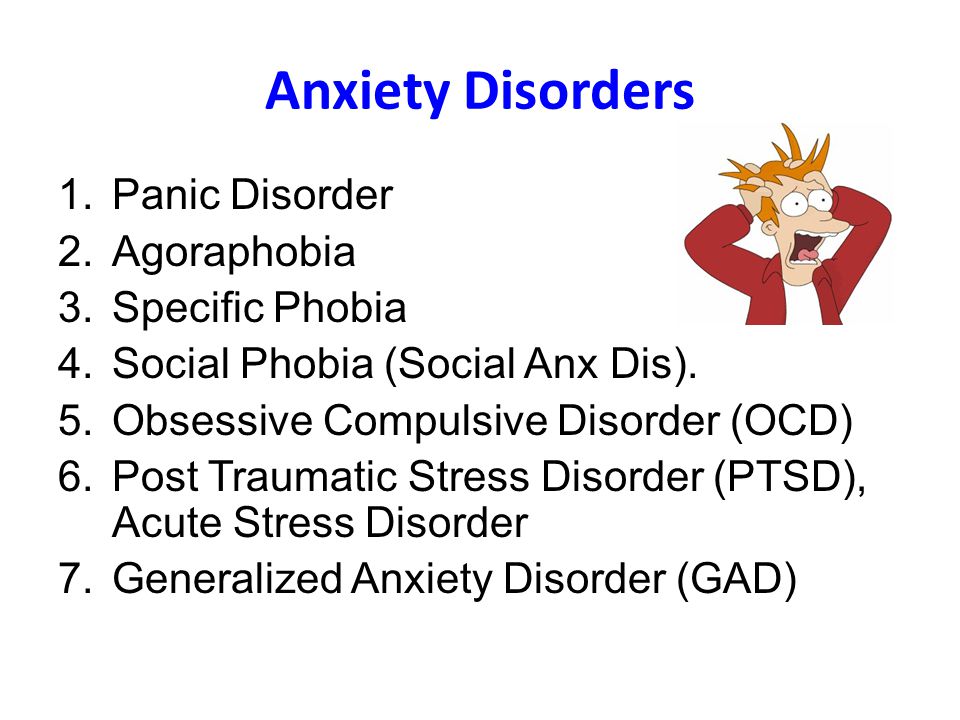 For example, if your supervisor verbally assigns you multiple tasks and you find it overwhelming, you could ask that supervisor if it would be possible to email you the tasks as well.
For example, if your supervisor verbally assigns you multiple tasks and you find it overwhelming, you could ask that supervisor if it would be possible to email you the tasks as well.
“If you can have someone who’s less burned out and less stressed, the employee wins and the employer wins,” she says. “Maybe there’s a little bit of a tweak in a role. Maybe you’re doing something that you’re OK at, but you really have another strength ... you could find a way to tap into.”
Ways to Get Help
Anxiety and stress shouldn’t be ignored. Professionals like counselors and therapists can help you feel better. They might recommend regular therapy sessions, medication, or other treatment.
Anxiety and Stress in the Workplace
Having an anxiety disorder can make a major impact in the workplace. People may turn down a promotion or other opportunity because it involves travel or public speaking; make excuses to get out of office parties, staff lunches, and other events or meetings with coworkers; or be unable to meet deadlines.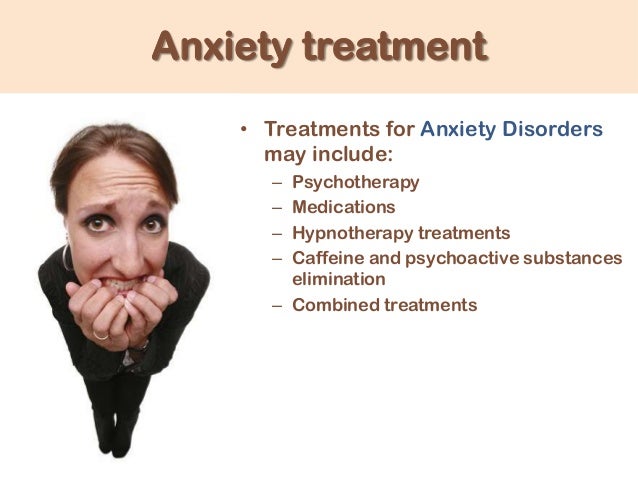
In a national survey on anxiety in the workplace, people with anxiety disorders commonly cited these as difficult situations: dealing with problems; setting and meeting deadlines; maintaining personal relationships; managing staff; participating in meetings, and making presentations.
Tell Your Employer?
It’s your decision to tell your employer about your anxiety disorder. Some people do so because they need accommodations, others want to educate people about their condition, and some do not want to hide their illness.
If you have a physical or mental disability and are qualified to do a job, the Americans with Disabilities Act of 1990 (ADA) protects you from job discrimination. Being qualified means you must satisfy an employer’s requirements for the job and be able to perform essential functions on your own or with reasonable accommodation. An employer cannot refuse to hire you because your disability prevents you from performing duties that are not essential to the job. Find out more about employment rights.
Find out more about employment rights.
Tips to Manage Stress and Anxiety at Work
Getting stressed out at work happens to everyone, and it’s perfectly normal. But stress that is persistent, irrational, and overwhelming and impairs daily functioning may indicate an anxiety disorder. Keep these ideas in mind to keep your work life manageable:
- Work! In addition to financial reasons, working can be important for your self-esteem and it adds to your social identity.
- Tell a trusted coworker. Knowing that someone accepts your condition can be comforting and it may reduce any anticipatory anxiety about having a panic attack at work.
- Educate yourself. Learn to recognize the symptoms of your disorder and how to handle them if you experience any at work.
- Practice time management. Make to-do lists and prioritize your work. Schedule enough time to complete each task or project.
- Plan and prepare. Get started on major projects as early as possible.
 Set mini-deadlines for yourself. Anticipate problems and work to prevent them.
Set mini-deadlines for yourself. Anticipate problems and work to prevent them. - Do it right the first time. Spend the extra time at the outset and save yourself a headache later when you have to redo your work.
- Be realistic. Don’t over commit or offer to take on projects if you don’t realistically have enough time.
- Ask for help. If you’re feeling overwhelmed, ask a coworker for help. Later you can return the favor.
- Communicate. Speak up calmly and diplomatically if you have too much to handle. Your supervisor may not realize you’re overextended.
- Stay organized. Filing and clearing your desk and computer desktop may rank low on your priority list, but they can save you time in the long run and may prevent a crisis later.
- Avoid toxic coworkers. Try to ignore negativity and gossip in your workplace.
- Take breaks. A walk around the block or a few minutes of deep breathing can help clear your head.

- Set boundaries. Try not to bring work home with you. Don’t check your work e-mail or voice mail after hours.
- Savor success. Take a moment to celebrate your
- good work before moving on to the next project. Thank everyone who helped you.
- Plan a vacation. You’ll be rejuvenated and ready to work when you come back.
- Take advantage of employer resources and benefits. Your workplace may offer an Employee Assistance Program (EAP), discounts to gyms, or skill-building courses. Learn what’s available to you.
- Be healthy. Eat healthfully, get enough sleep, exercise regularly, and limit caffeine and alcohol. Try to keep your body and mind in shape to handle challenging situations.
Getting Help
It’s important to find help for anxiety, stress, and related disorders. Find a therapist near you.
With treatment, most people find significant improvement. Several standard approaches have proved effective.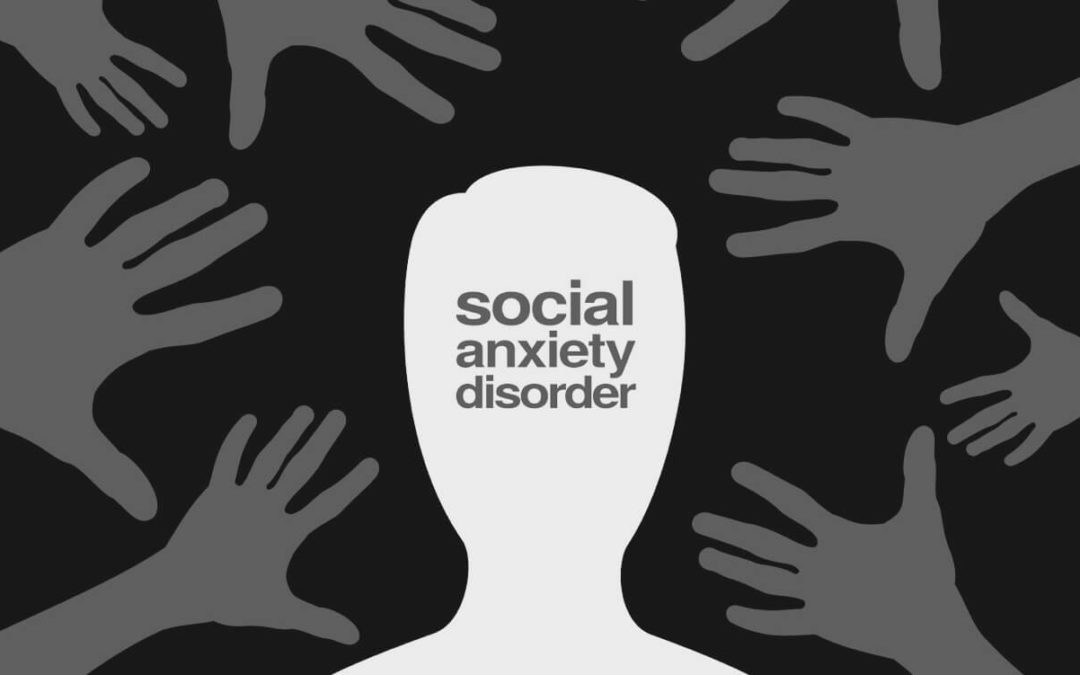 Your health care professional will use one or a combination of these treatments:
Your health care professional will use one or a combination of these treatments:
- Therapy
- Medication
- Complementary and alternative treatment
Resources
American Psychological Association Workplace Issues
Bazelon Center for Mental Health Law
Fit Small Business: Article: How to Prevent and Deal with Discrimination in the Work Place, May 15, 2017
U.S. Equal Employment Opportunity Commission
Facts About the Americans With Disabilities Act
Mental Health America
How to deal with anxiety at work
Everyone experiences stress to some extent. It can arise from the vicissitudes of personal life, workload, or both, is familiar to everyone and sometimes leads to positive consequences. But if stress develops into increased anxiety, this begins to negatively affect a person’s daily life and his productivity. If left to chance, work-related anxiety can slow down a project and hurt team relationships.
In this article, you will learn about the signs and symptoms of increased anxiety. In addition, you will learn some tips and tricks to help reduce anxiety.
What is heightened anxiety?
Increased work-related anxiety can be either a result of work stress or an anxiety disorder. In both cases, the symptoms are very similar. If a person experiences anxiety at work, this does not mean that he needs to be diagnosed with an anxiety disorder. But people with generalized anxiety disorder, panic disorder, social anxiety disorder, and some other phobias may experience heightened anxiety at work.
According to the Anxiety and Depression Association of America (ADAA), anxiety disorders are the most common psychiatric disorder in the United States, with over 40 million adult patients per year. Although these diseases respond well to treatment, only 36.9% of patients receive treatment.
What are the symptoms of increased work-related anxiety?
Anxiety can manifest itself in different ways. Some symptoms that are also common to anxiety disorders include:
Some symptoms that are also common to anxiety disorders include:
- Excessive anxiety about everyday things
- Difficulty in controlling nervousness and anxiety
- Problems with concentration
- shyness
- Constant feeling of tiredness
- Trouble sleeping or falling asleep
- Tremors, tics or trouble swallowing
- Constant feeling of dissatisfaction or irritation
At work, anxiety can manifest itself in the following ways:
- Overreaction to various situations
- Too frequent sick days or days off
- Inattention or violation of deadlines for completing tasks
- Reluctance to attend lunches with colleagues, office parties and other events
- Refusal of offers to give a speech, go on a business trip, etc.
Do you have work-related anxiety when you work from home?
Of course yes. People suffering from anxiety disorders may feel some relief from working from home, especially if they are diagnosed with social anxiety disorders.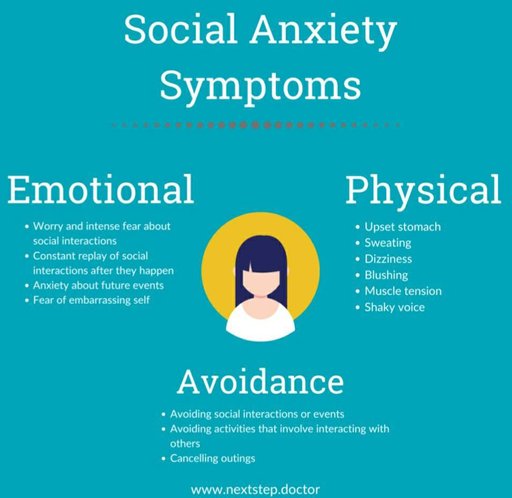 But when switching to remote work, new stressors can also arise that increase anxiety. What's more, people who usually don't experience much stress or anxiety while working in the office may experience increased anxiety when they telecommute. Stress can be caused by several factors associated with working from home, including:
But when switching to remote work, new stressors can also arise that increase anxiety. What's more, people who usually don't experience much stress or anxiety while working in the office may experience increased anxiety when they telecommute. Stress can be caused by several factors associated with working from home, including:
- Irregular working hours
- Lack of work-life balance
- Feelings of loneliness, isolation and isolation from colleagues
How does anxiety affect your work?
Anxiety symptoms such as fatigue, insomnia and difficulty concentrating can of course negatively affect work performance. If you find it difficult to focus on a task, you risk making a mistake that could cost your company dearly, such as missing an important milestone in a workflow, forgetting to complete a required step, or missing a deadline.
Anxiety can reduce productivity in less obvious ways. For example, feelings of anxiety may prevent you from pitching an idea or giving feedback during a meeting.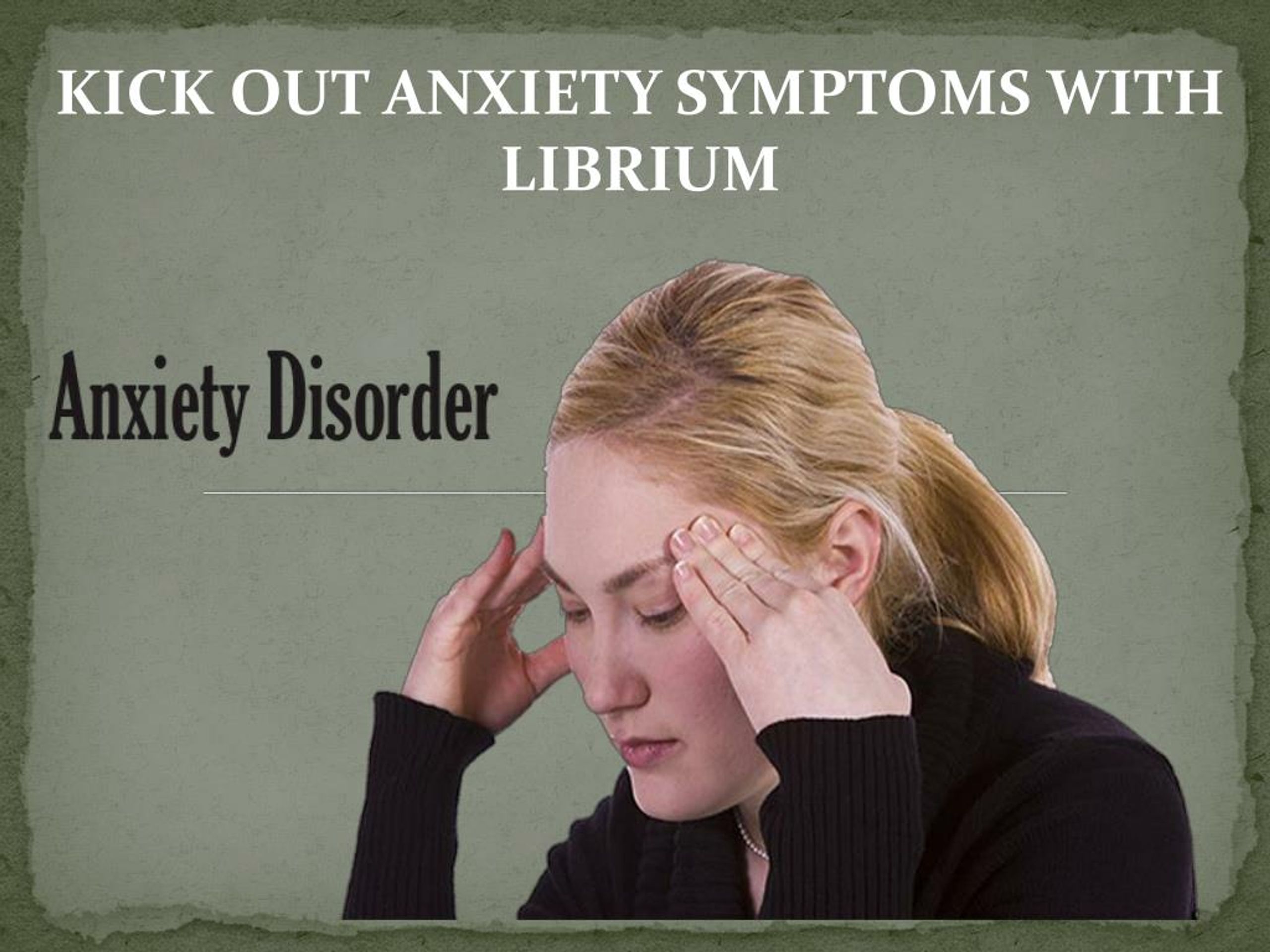 A person with increased anxiety may even hurt his career and turn down a promotion because the new position would require him to speak in public, travel, or actively interact with people.
A person with increased anxiety may even hurt his career and turn down a promotion because the new position would require him to speak in public, travel, or actively interact with people.
Moreover, anxiety disorders can lead to short-term or even long-term disability. According to a 2014 study, an average of 4.6 work days per month and 18.1 work days every three months are lost due to anxiety-related illnesses.
How to deal with anxiety at work
Anxiety disorders are good because they are treatable. In addition, certain steps can be taken in advance to reduce the level of anxiety. Here are some of them:
- Know team members by name
Interpersonal relationships are one of the biggest sources of anxiety at work. But the better you know your colleagues, the stronger the bonds between the people on your team will be, and it all starts with getting to know each other. It may seem like a small thing to you, but it's actually very important.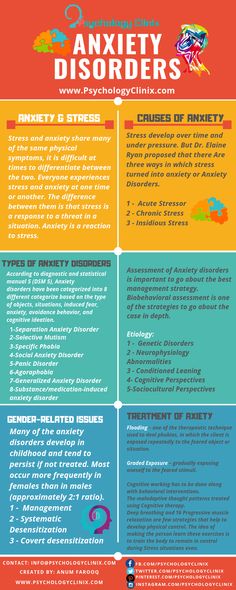
- Know about office cliques
The larger your organization, the more likely it is that employees will clique. In the end, to unite with their own kind in human nature. But when the cliques become too insular and the rest of the employees begin to feel like outcasts, problems arise.If you suffer from increased anxiety, avoid gangs that display objectionable behavior, such as spreading gossip, and this will help you avoid unnecessary stress.
- Maintain personal contact whenever possible
Even before the pandemic, this was easier said than done. Well, in a post-COVID-19 world, it has become even more important to have regular Zoom meetings. E-mail leaves too much room for misunderstandings, and this can lead to an increase in anxiety levels. - Set reasonable deadlines
Anxious people sometimes agree to obviously impossible deadlines for fear of upsetting someone or causing conflict. The irony is that this leads to even more anxiety as the deadline approaches. Instead, you need to be honest and give realistic deadlines. Even if a deadline is not discussed, you can be less anxious if you say everything in advance and work at your own pace.
The irony is that this leads to even more anxiety as the deadline approaches. Instead, you need to be honest and give realistic deadlines. Even if a deadline is not discussed, you can be less anxious if you say everything in advance and work at your own pace. - Ask for help
Finally, don't be afraid to ask for help. Anxiety can rise when you're assigned a task you've never done, but it's best to ask for help early on to avoid more stress later on.
How to get help with anxiety
If you are experiencing work-related anxiety, you can request psychological counseling by contacting Human Resources. In addition, you can just talk about your feelings with a true friend or colleague.
Anxiety disorder: symptoms, diagnosis and treatment
Psychotherapist
Krashkina
Irina Ivanovna
Experience 31 years
Psychotherapist, candidate of medical sciences, member of the Russian Professional Psychotherapeutic League
Make an appointment
Anxiety disorder is a type of neurotic condition in which a person experiences continuous anxiety about life circumstances, their appearance and relationships with people around them.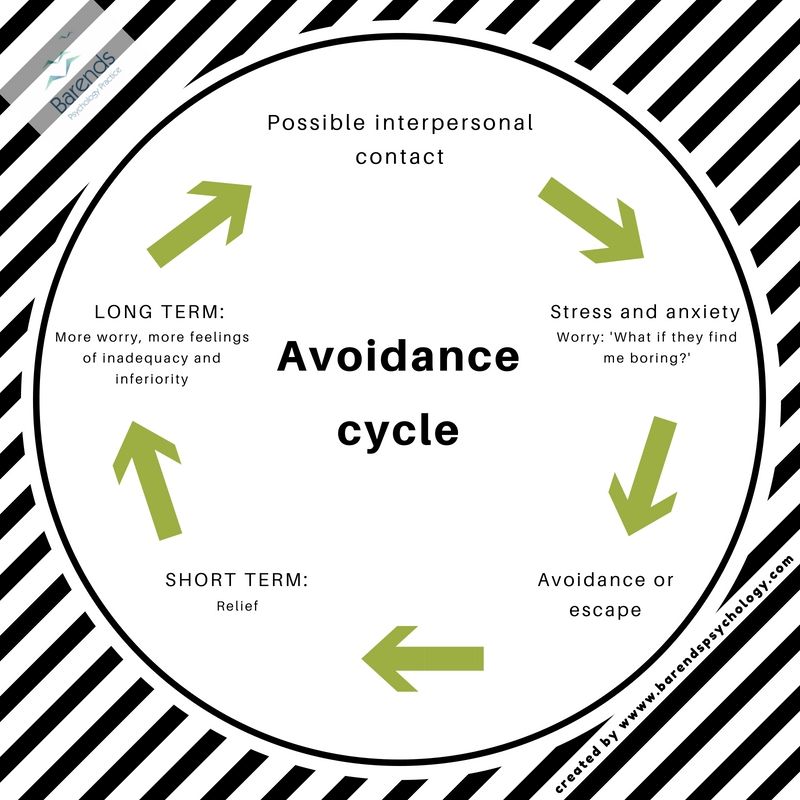 Staying in this state for a long time creates uncomfortable living conditions for a person, which become the reason for him to withdraw into himself, not to develop his own abilities and limit his social circle.
Staying in this state for a long time creates uncomfortable living conditions for a person, which become the reason for him to withdraw into himself, not to develop his own abilities and limit his social circle.
Symptoms and signs
It is believed that when an anxiety disorder appears, the symptoms are as follows:
- severe form of anxiety and emotional stress before the onset of panic attacks;
- frequent mood swings;
- persistent sleep disorder;
- constant conflicts with others;
- reduced acuity of reactions and inhibited thinking;
- increased sweating, rapid pulse;
- fatigue and weakness leading to decreased performance;
- complaints about the appearance of pain in different parts of the body.
These symptoms of an anxiety disorder are signs of autonomic and mental disorders.
The hallmarks of symptoms of generalized anxiety disorder are:
- total manifestation of anxiety before any life circumstances;
- inability to concentrate on domestic activities or work;
- constant motor voltage;
- inability to relax;
- indigestion and stomach pain;
- heart disease.

Symptoms of an anxiety-depressive disorder occur against the background of constant depression:
- lack of interest in the manifestations of life and close people;
- lack of positive emotions;
- sudden feeling of fear;
- vegetative disorders - rapid pulse, shortness of breath, shortness of breath, increased sweating, proximity to fainting, etc.
Causes of the onset and development of the disease
Experts believe that the following factors contribute to the appearance of the disease:
- persistent circulatory disorders, hormonal imbalances or chronic heart disease;
- chronic form of dependence on alcohol, drugs, psychoactive substances, as well as a sharp cessation of their use;
- traumatic brain injuries and their consequences;
- being in a situation of prolonged stress;
- character traits - melancholic temperament, disturbing accents in the temperament of the character;
- tendency to exaggerate dangers due to their high susceptibility;
- neurotic and mental disorders: depression, neurasthenia, hysteria, schizophrenia, paranoia, various manias;
- mental trauma in children at an early age and in adults in extreme situations - war, earthquake, being in a state close to death, loss of a loved one or his support, and others.
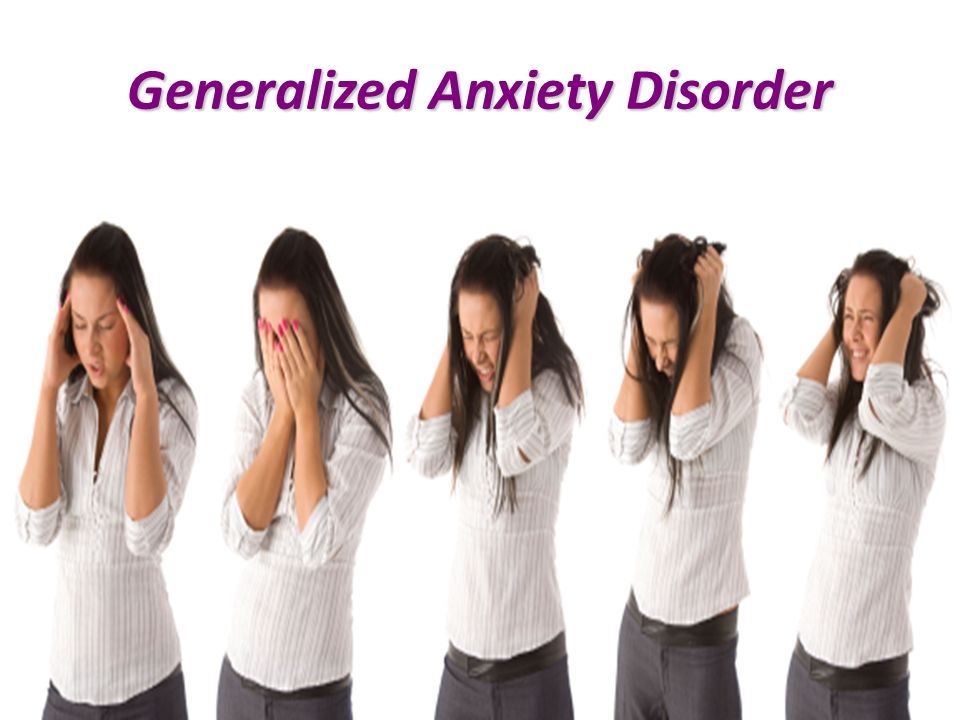
Psychologists view the process of anxiety in different ways:
- adherents of psychoanalysis believe that the reason is the regular suppression of their own desires;
- the second believe that the reason is the break in the connection between the stimulus and the response of the psyche to the stimulus;
- still others believe that the reason is in the reaction of the psyche to distorted mental images of a person.
Disease classification
Anxiety disorder according to the ICD is a neurotic disorder along with fears, suspiciousness and post-traumatic disorders. One of the main signs of an anxious personality disorder is the pathology of the origin of anxiety, the disproportionate degree of protection to the stimulus factor.
Pathological anxiety:
- not caused by real danger;
- is not proportionate to the significance of the situation;
- is not associated with a lack of time and knowledge;
- is being actively ousted;
- brings significant discomfort to a person's life;
- is much more pronounced than normal;
- is long in time;
- has satellites in the form of tension and expectation of consequences, concern and doubt, feelings of helplessness.
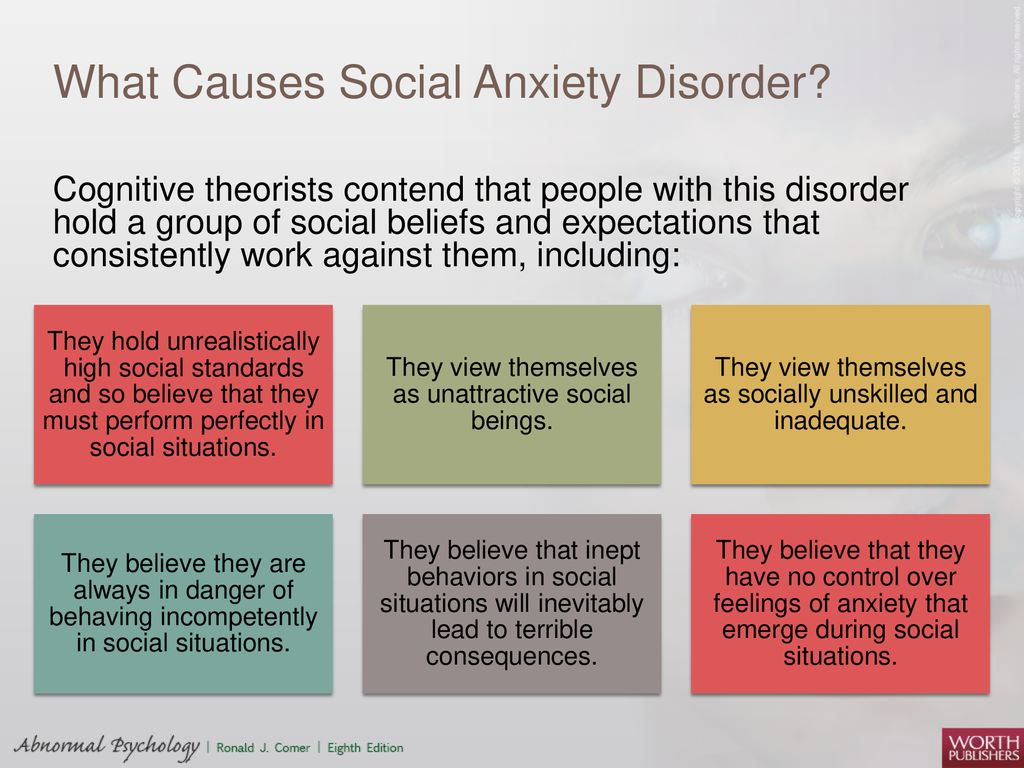
Types of anxiety disorder:
- anxiety-depressive disorder is caused by the constant presence of anxiety without sources of danger, has pathological changes in the patient's personality;
- phobic anxiety disorder is based on dwelling on past unpleasant consequences;
- social anxiety disorder is characterized by the patient's avoidance of contact with other people;
- mixed anxiety disorder causes a simultaneous feeling of pathological anxiety and depressed mood;
- anxiety-panic disorder is characterized by the presence of panic attacks;
- anxiety-neurotic disorder is associated with anxiety before any diseases, severe shyness and unrest;
- generalized anxiety disorder is accompanied by excessive fussiness, anxiety without certain dangers and threats.
Risk factors and groups
Risk factors include child abuse, hereditary mental disorders, historical family poverty, or other antisocial manifestations.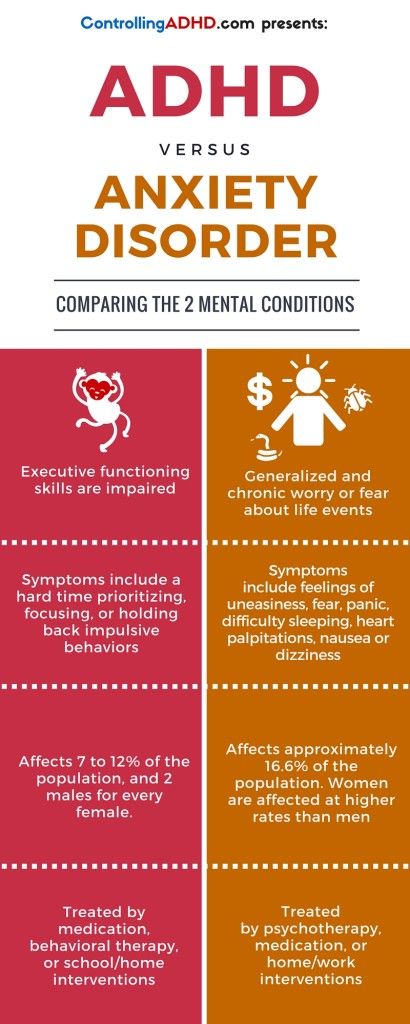
The risk group includes people prone to neurotic diseases - depression, hysteria; people taking alcohol, drugs, psychotropic drugs; women between the ages of 20 and 30.
Complications
In the absence of adequate treatment, anxiety disorder leads to the following socio-psychological complications:
- low self-esteem;
- self-isolation from society;
- insomnia;
- the appearance of a feeling of hopelessness;
- exhaustion of the body.
Social complications are job loss, financial problems, relationship breakdown, alcoholism, drug addiction, substance abuse, and others. Physical complications - irritation in the intestines, heartburn, lack of interest in sex, weight loss or excess weight gain, headaches and muscle strain, decreased immunity, the development of allergies, accelerated aging, cancer, heart disease and many others.
Diagnostics
The accumulated information about this disease made it possible to test reliable methods of drug and psychotherapeutic treatment.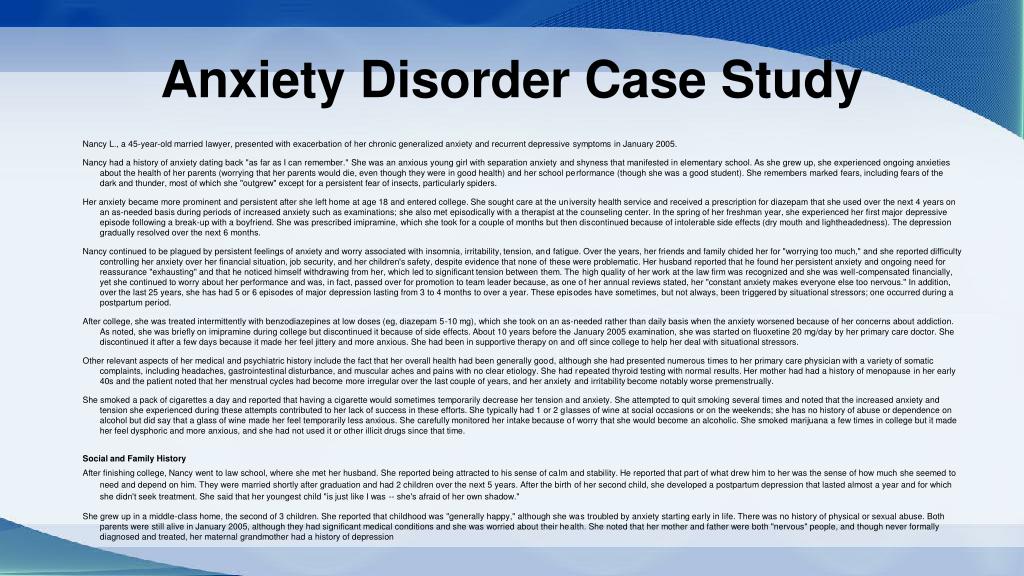 This disease belongs to the areas of professional interest of a psychiatrist and a medical psychologist.
This disease belongs to the areas of professional interest of a psychiatrist and a medical psychologist.
Specialists use the following methods for diagnosing a neurotic disease:
- initial individual consultation involves a survey to identify emotional reactions, obtain information about the patient's lifestyle, motives and interests;
- psychodiagnostic examination and projective testing aimed at identifying pathological anxiety and related disorders;
- observations of the patient and his life, relationships with the outside world and with people.
Preparing to see a doctor
Before entering the psychotherapist's office, the patient is advised to formulate all his problems, report on the use of all psychoactive substances, including the start/end dates and the total duration of the use. In addition, the positive attitude of the patient to the treatment and the effect that it will bring is extremely important.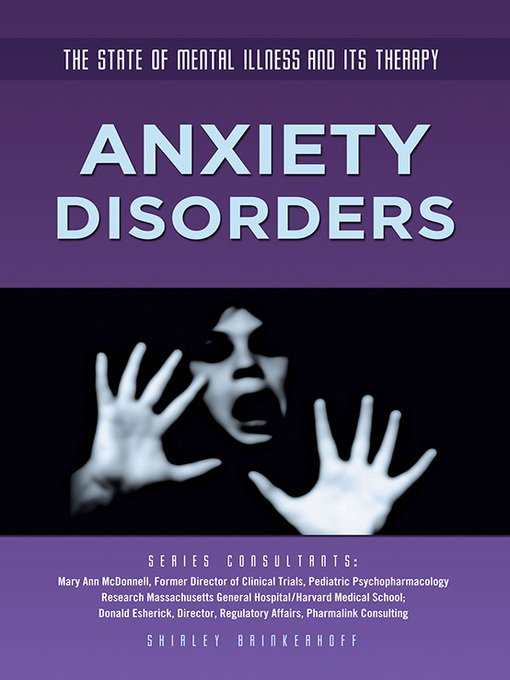
Treatment
Anxiety disorders are treated with a complex of methods based on changing the patient's lifestyle, psychotherapy and taking medications. Treatment for generalized anxiety disorder is based on the use of psychoactive-type medications, such as antidepressants. In no case should you arbitrarily stop taking medications. Psychotherapy of anxiety disorder is carried out by various methods - individual, group, family. The main direction of the impact of therapy is an increased impact on the attitude towards the fears and anxieties that have appeared.
Among traditional medicine, it is possible to use medicinal herbs, infusions and decoctions from them, for example, lemon balm, chamomile. These herbs act on the human body, bringing a relaxing effect, thanks to this effect, anxiety disorders and their cause temporarily reduce their degree of activity.
Self-treatment of an anxiety disorder threatens with pains and neuroses of a different nature, which need to be treated more deeply.








